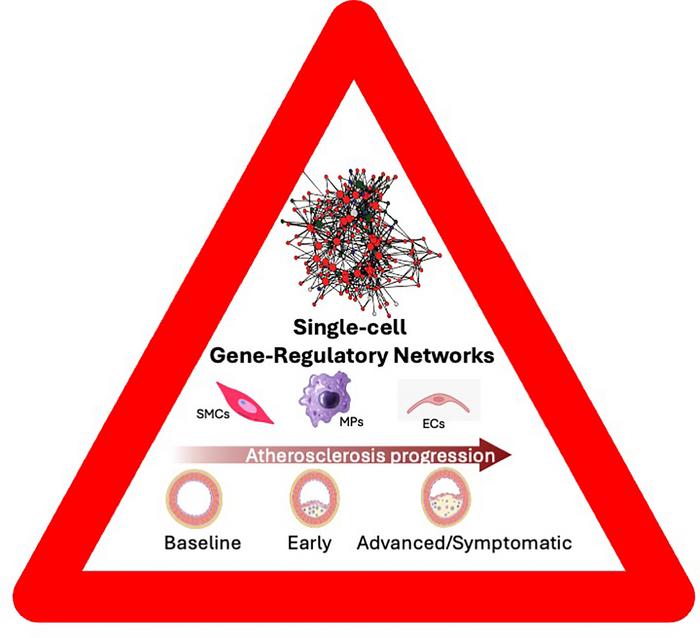A group of researchers from the University of Tartu and international scientists discovered new mechanisms of how stroke occurs by studying changes in mouse and human cells. The study lays the foundation for new, more precise treatment methods and better diagnostics, which could improve cardiovascular health in the future.

Credit: Author: Katyayani Sukhavasi
A group of researchers from the University of Tartu and international scientists discovered new mechanisms of how stroke occurs by studying changes in mouse and human cells. The study lays the foundation for new, more precise treatment methods and better diagnostics, which could improve cardiovascular health in the future.
One of the authors of the study, a PhD student of Faculty of Medicine of University of Tartu Katyayani Sukhavasi said that affecting people of all ages, every fifth minute, someone suffers a stroke resulting in brain bleeding or ischemia. „Consequently, many people die or get life-long disabilities. Hardening of the arteries, called atherosclerosis, is a major cause of stroke. Critical for this process are the various types of cells in the vascular wall, mainly endothelial cells, smooth muscle cells and different forms of immune and inflammatory cells.“
In the current study, the team of Giuseppe Mocci, Katyayani Sukhavasi, Arno Ruusalepp, Heli Järve, and Johan Björkegren utilized single-cell RNA sequencing (Smart-Seq2) to generate the deepest multi-species single cell omics dataset of atherosclerosis to date. Next, by applying advanced bioinformatic analysis to this dataset, the authors revealed cell-specific gene expression patterns underlying transformation of vascular cells leading to advanced atherosclerosis.
Besides successfully reidentifying vascular cell subclusters identified earlier by others, the authors also markedly expanded the gene content of three distinct smooth muscle cell subclusters associated with conversion to an osteogenic phenotype during the advanced stages of atherosclerosis. „In parallel, three macrophage subclusters associated with proinflammation and Trem2-rich lipid content in advanced atherosclerosis were identified,” said Sukhavasi.
Giuseppe Mocci from Karolinska Institutet mentioned that by uniquely integrating these six subclusters with 135 human gene-regulatory networks (GRNs), the study pinpointed several GRNs with key disease drivers responsible for vascular cell transformation leading to symptomatic carotid stenosis. Next, by uniquely integrating these six subclusters with 135 human gene-regulatory networks (GRNs), the study pinpointed several GRNs with key disease drivers responsible for vascular cell transformation leading to symptomatic carotid stenosis.
Dr Arno Ruusalepp said that combined bulk and single-cell RNA sequencing data from different species will provide information about the biological mechanisms that cause complex diseases, such as stroke. “Such an approach allows us to find key locations in gene networks that are likely to be more effective treatment targets than to try the traditional one-gene-by-gene approach, especially in complex diseases”.
Dr Heli Järve added that this research combines genomics, clinical medicine and public health. Real change requires the cooperation of all parties. “By understanding the molecular mechanisms of symptomatic atherosclerosis, our research lays the foundation for new more targeted therapies and improved diagnostics of stroke, and thus, may in the longer perspective, improve cardiovascular health for millions of people worldwide,“ emphasized Dr. Johan Björkegren from Karolinska Institutet.
Journal
Circulation Research
Method of Research
Experimental study
Subject of Research
People
Article Title
Single-Cell Gene-Regulatory Networks of Advanced Symptomatic Atherosclerosis
Article Publication Date
19-Apr-2024
COI Statement
J.L.M. Björkegren and A. Ruusalepp are shareholders of Clinical Gene Networks
AB (CGN) that has an invested interest in STARNET.



